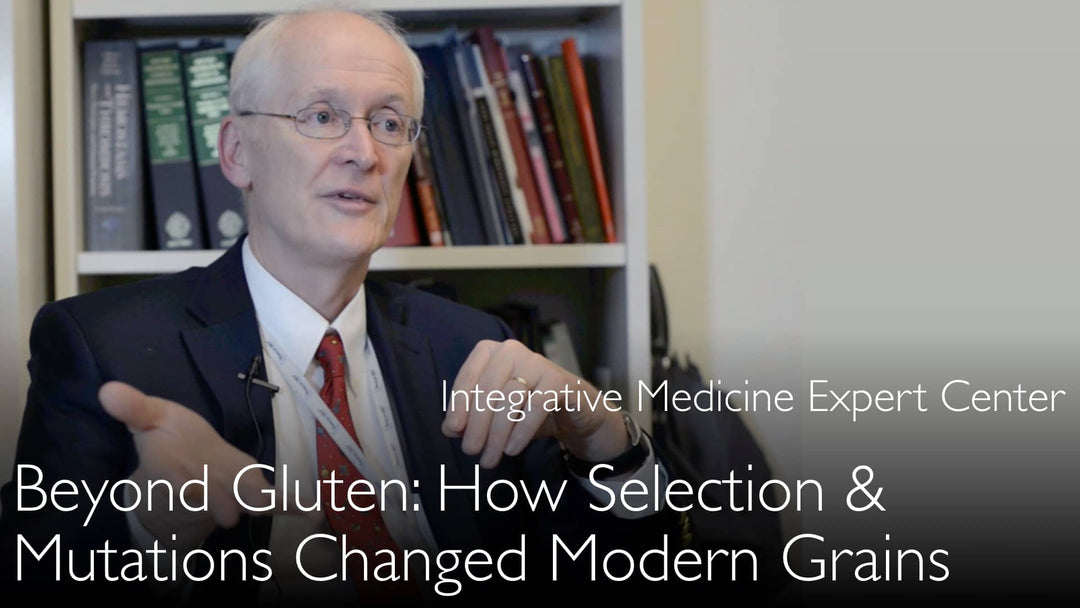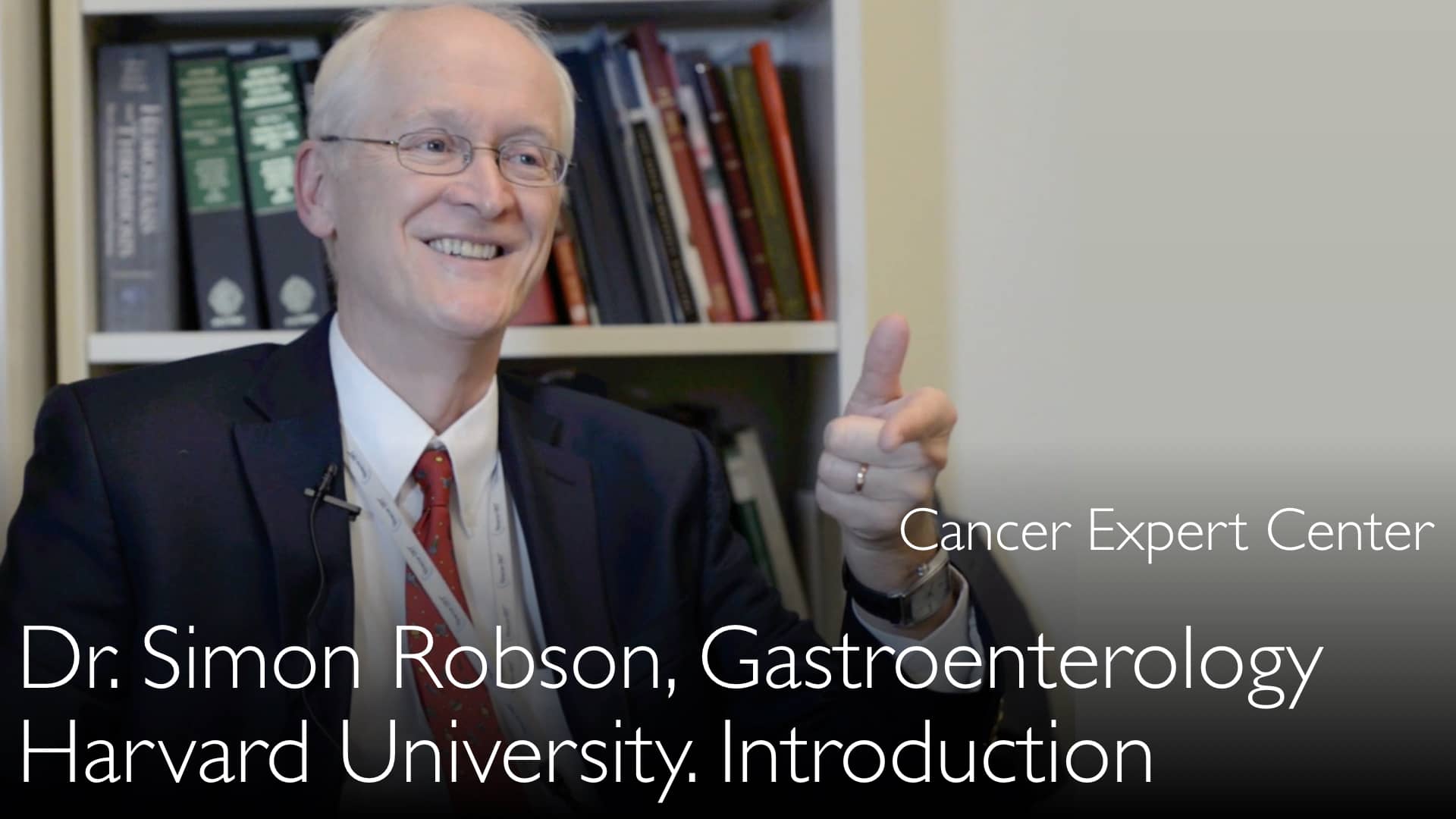Leading expert in gastroenterology and liver disease, Dr. Simon Robson, MD, explains how radiation-mutated wheat may cause food sensitivity. Random mutagenesis from X-rays and chemicals altered non-gliadin wheat proteins. These altered components can damage the intestinal wall and trigger immune responses. Dr. Simon Robson, MD, discusses the link between modern wheat and autoimmune diseases. He highlights the importance of looking beyond gluten intolerance for a complete diagnosis.
Beyond Gluten Intolerance: How Radiation-Mutated Wheat Affects Gut Health
Jump To Section
- The Wheat Mutation Process
- Non-Gliadin Proteins and Gut Injury
- Immune Response Mechanisms
- Diagnostic Challenges in Food Sensitivity
- Clinical Implications for Patients
- Full Transcript
The Wheat Mutation Process
Dr. Simon Robson, MD, details the historical modification of wheat during the Green Revolution. He explains that wheat was not genetically modified in a direct, laboratory-controlled manner. Instead, it was subjected to random X-ray radiation and chemical mutagenesis. This process induced sporadic changes in the wheat genome to create desirable traits like larger ears and dwarf varieties for higher yields. Dr. Simon Robson, MD, emphasizes that this indiscriminate mutagenesis is different from targeted genetic modification. The random nature of these changes means many altered components in modern wheat remain unknown.
Non-Gliadin Proteins and Gut Injury
The interview with Dr. Simon Robson, MD, moves beyond gluten to discuss other problematic wheat components. He highlights that radiation mutagenesis altered non-gliadin proteins, not just gliadin. A key example is amylase trypsin inhibitors, which are now present in wheat in high concentrations. Dr. Simon Robson, MD, explains these non-gliadin components can directly damage the intestinal wall. This injury can occur independently of classic gluten intolerance or celiac disease pathways. The presence of these altered proteins suggests wheat sensitivity may be a broader issue than gluten sensitivity alone.
Immune Response Mechanisms
Dr. Simon Robson, MD, describes how mutated wheat proteins can provoke disease. He references the work of other experts, like Professor Detlef Schuppan, in this field. Non-gliadin molecules may bind to HLA-type molecules, triggering an autoimmune response. Other components can activate innate immune mechanisms by binding to Toll-like receptors. Dr. Robson clarifies this can lead to a spectrum of clinical and subclinical problems. Symptoms may include fatigue, neurological disorders, and general stress, which are often attributed to gluten sensitivity.
Diagnostic Challenges in Food Sensitivity
Dr. Simon Robson, MD, discusses the difficulty in diagnosing non-celiac wheat sensitivity. Unlike celiac disease, there is no definitive blood test or biopsy to confirm it. Celiac disease diagnosis relies on specific clinical grounds, blood testing, and intestinal biopsy showing direct damage. Dr. Simon Robson, MD, notes that many cases of self-reported gluten sensitivity lack robust scientific proof. He suggests that the veracity of treatment through gluten withdrawal is still being studied. This diagnostic uncertainty is why a medical second opinion is crucial for confirming celiac disease or exploring other causes like Crohn's disease or ulcerative colitis.
Clinical Implications for Patients
Dr. Anton Titov, MD, and Dr. Simon Robson, MD, explore the real-world impact of these findings. Patients experiencing unexplained gut issues or autoimmune symptoms should consider modern wheat as a potential trigger. Dr. Robson advises that the solution may involve separating radiation-mutated wheat from more natural grain sources. He cautions that simply adopting a gluten-free diet may not address injuries caused by non-gliadin proteins. Understanding that wheat itself has changed is a critical step for patients and clinicians managing complex food sensitivities and autoimmune diseases.
Full Transcript
Dr. Anton Titov, MD: We have to move beyond gluten intolerance in discussion of optimal diet. Radiation-mutated wheat contains many other altered non-gliadin components that can lead to damage of the intestinal wall. A leading expert in gastroenterology and liver disease discusses how radiation and chemicals changed grains.
Random mutagenesis of wheat possibly increased the risk of autoimmune diseases.
Dr. Simon Robson, MD: Gluten-free diets are popular for patients who consider themselves "gluten sensitive." It is not only about the gluten content of wheat and other grains. Non-gliadin proteins are also mutated by radiation and selection.
Non-gliadin components of wheat can create gut sensitivity. We have to look beyond gluten intolerance to understand food sensitivity today. Radiation-mutated wheat has changed our food supply.
Ionizing radiation bombards wheat on a random basis and can lead to modification of many grain proteins. Trypsin inhibitors are present in wheat in high amounts and can damage the intestinal wall.
In cases of gluten intolerance and celiac disease, a medical second opinion helps to make sure the celiac disease diagnosis is correct and complete. A medical second opinion also helps to choose the best treatment for celiac disease, Crohn's disease, or ulcerative colitis.
Dr. Anton Titov, MD: Selection and chemical modification create useful mutants, but mutant wheat is bred with radiation. We do not know which components of wheat are mutated or how.
Random irradiation and chemical mutagenesis of wheat is worse than genetic modification. Indiscriminate mutagenesis is what's wrong with modern wheat.
Patients might be allergic to other grain components. It is going beyond gluten intolerance. We have to consider separation of radiation-mutated wheat from more natural grain sources.
There could be a difference between wheat sensitivity and gluten sensitivity. Other components of the wheat can cause injury to the intestines and liver.
Dr. Simon Robson, MD: Has gluten changed? Has wheat changed? During the Green Revolution, an interesting fact happened. One of the main changes with wheat was to mutate it.
It was not a genetic modification per se. It was not induced in the laboratory. It was much more sporadic, using X-ray radiation.
X-rays and other ionizing radiation were used to mutate the genome of wheat.
Dr. Anton Titov, MD: The wheat was subjected to ionizing radiation on a random basis?
Dr. Simon Robson, MD: Wheat was mutated on a random basis. Chemical mutations were introduced into the wheat genome, then plant selection was done.
They were able to get really big ears of wheat, right? The problem was that wheat ears were so big that everything would fall over, and the wheat crop was spoiled.
The next step was to create a dwarf type of wheat that is much shorter. Some more mutations were induced to create dwarf wheat.
You do random mutations by X-rays and chemical mutagenesis. Then you may be inducing some other changes in the wheat.
Again, you have got a monoculture, so maybe the gliadin is at higher concentration, maybe not. We have other physicians who work in the field in my division.
They have actually worked also elsewhere. Professor Detlef Schuppan is a leader in this area. He is a hepatologist and is also involved in celiac disease research.
He has proposed that it is not only the gluten and the gliadin. There are other molecules that could be causing problems by binding to HLA type molecules and provoking disease.
Also, there are non-gliadin components of the wheat. For example, there are amylase trypsin inhibitors that are present now in wheat in high concentrations.
You are removing gluten from the diet, but there may be other constituents of the wheat that can provoke injury by innate immune mechanisms.
Other molecules in wheat may bind to Toll receptors and other receptors. One end of the disease spectrum would be gluten sensitivity and celiac disease.
Then patients have these other subclinical problems: they have fatigue, neurological disorders, stress, and so forth.
There has been this move to take gluten out of the diet with the goal to enhance patients' health. But many of these ideas seem to be food faddism.
There is not a lot of science to back that up. This is unlike celiac disease, where you can make a definitive diagnosis on clinical grounds.
You can use blood testing and then biopsy of the intestine to show damage done directly from the wheat. A lot of these other forms of gluten sensitivity may well be real, but we still lack some of the scientific proof to show the veracity of treatment by gluten withdrawal.
As I pointed out above, there may be other components of the wheat that can cause injury. It is a very interesting area of research.
Dr. Anton Titov, MD: It is interesting to learn that even though wheat is not genetically modified in a direct sense—classical genetic modification involves insertions of certain genes based on molecular biology knowledge and technology—wheat is modified, mutated, by random X-ray bombardment.
That leads to changes that we might not know about.
Dr. Simon Robson, MD: Gluten could be just one genetic change, but there could be some other associated molecules that we don't know about. They can cause clinical or subclinical body injury that looks similar to gluten intolerance.
But again, it is almost magical, right? The amount of wheat yields is huge and has increased dramatically.
It is not just from the genetic modification, because we have been genetically modifying things by selective breeding for many, many years.
Livestock and all the vegetables are non-toxic and very palatable to us. They are not causing any problems.
This has been happening over the last 10,000 or 15,000 years with agriculture. But right now we can do genetic modifications in a much more targeted manner.








